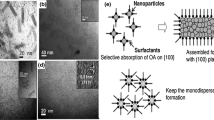
Overview
- Written by leading scholars from around the world with the latest developments and research
- Comprehensive coverage in a variety of key disciplines such as plant sciences, biotechnology, and biomedicine
- Illustrated and fully referenced for further reading
Part of the book series: Environmental Contamination Remediation and Management (ENCRMA)
Access this book
Tax calculation will be finalised at checkout
Other ways to access
About this book
This textbook provides an overview of applications of advanced nanomaterials, basic lab set up and requirements in for their synthesis, techniques and career scope of nanotechnology in industries and research.
Pollution of air, water, soil is an ever increasing environmental problem attributed to increasing population, global industrialization and unplanned urbanization, has acquired alarming dimensions. It is the most dangerous and worst problem that puts the lives of people, animals, and plants on the earth in danger. An effective, efficient and sustainable approach for managing pollution related problems requires the utmost attention of the scientific community to tackle this menace for the society to lead a healthy and quality life. A number of techniques and books, literatures have been developed in recent years to treat environmental contaminants. However, most of these are not economically viable, environmentally benign and suffer due to cumbersome multi-step manipulations. The purpose of this textbook is to inform students about the application of functionalized nanoparticles as a new approach to supplement traditional treatment methods in cost and time effective manner. The simplistic means to assemble nanoparticles to the constituents of next generation technologies in environment cleanup and sensing are the main objectives of the book. The toxicological footprinting of released advanced functional nanomaterials in ecosystem will also be discussed in the book.Similar content being viewed by others
Keywords
Table of contents (12 chapters)
-
Front Matter
Editors and Affiliations
About the editors
Dr. Rajeev Kumar is a permanent faculty at the Department of Environment Studies, Panjab University, Chandigarh since July 2010. Dr. Kumar obtained his Ph.D degree in Chemistry from the Department of Chemistry, Panjab University, Chandigarh during which he published various research articles in journal of international repute. His laboratory focuses on the eco-friendly removal of environmental pollutants, specifically on the fungal remediation of recalcitrant compounds. His research group makes use of different modern technologies based on organometallics and nano- chemistry for this purpose. Dr. Kumar is the recipient research awards from the different funding agencies of the Government of India viz. Science and Engineering Research Board (SERB)- a statutory body of the Department of Science & Technology (DST) and University Grants Commission (UGC) for his research endeavors. He has also been the Project Director of “Indo-US Partnership on Green Chemistry/Engineering and Technologies Education, Research and Outreach for Sustainable Development funded by UGC and Ministry for Human Resource and Development (MHRD), India. He has published 62 International research papers in with more than 180 citations in journal of international repute making his H-index of 21. His publications also include 17 International book chapters with Springer International; CRC, London and Wiley Interscience etc. Dr. Rajeev Kumar has visited several countries for his research work and has International collaborators from various countries including USA, Israel, Singapore, Vietnam and Australia.
Savita Chaudhary is working as an Assistant Professor in Department of Chemistry & Centre of Advanced Studies, Panjab University, Chandigarh. She has made significant contributions in the visionary mission of the central government under Swachata Abhiyan by using the application of advanced nanomaterials. The current state of her work offers a sustainable use of nanoparticles in treating realistic water and harmful radiation problems. Her research methodology provides the better option of waste biomass conversion into useful advanced carbon dots. Therefore her research work, overcomes the problem of waste disposal and burning of crop stubble to a greater extent. The fabrication of chemodosimeters, fluorescence and electrochemical based sensors by Chaudhary et al. has un-wrapped colossal range of prospects of their utilization from laboratory study to realistic waste water treatment. Dr. Chaudhary is credited with “140 publications inrepute journals with h-index of 28, i10 index of 70 and 2640 citations”. The consolidated impact factor of her research work is 400. Her work is acknowledged at various National and International platform. She has authored 1book and 14 book chapters. She has been conferred with “Haryana Yuva Vigyan Ratan Award (2014-15)”, “DST-DAAD fellowship (2008)” and best posters and presentation awards. Dr. Chaudhary has handled 5 independent major research projects.
Bibliographic Information
Book Title: Advanced Functional Nanoparticles "Boon or Bane" for Environment Remediation Applications
Book Subtitle: Combating Environmental Issues
Editors: Raman Kumar, Rajeev Kumar, Savita Chaudhary
Series Title: Environmental Contamination Remediation and Management
DOI: https://doi.org/10.1007/978-3-031-24416-2
Publisher: Springer Cham
eBook Packages: Earth and Environmental Science, Earth and Environmental Science (R0)
Copyright Information: Springer Nature Switzerland AG 2023
Hardcover ISBN: 978-3-031-24415-5Published: 19 May 2023
Softcover ISBN: 978-3-031-24418-6Published: 19 May 2024
eBook ISBN: 978-3-031-24416-2Published: 17 May 2023
Series ISSN: 2522-5847
Series E-ISSN: 2522-5855
Edition Number: 1
Number of Pages: XV, 363
Number of Illustrations: 1 b/w illustrations
Topics: Nanotechnology, Biochemistry, general, Environmental Engineering/Biotechnology, Nanochemistry, Environmental Chemistry



